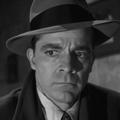Leia reviewed Rendezvous with Rama (Rama, #1) by Arthur C. Clarke
There is a reason it is still known
5 stars
Very little sci fi is still talked about decades later. And often, that which is, how the author was a huge asshole/sexist/etc. is a part of that conversation.
I haven't heard any of that about Arthur C. Clarke. And the book is still solid both in it's sci fi and its politics. If anything, it's more optimistic than more modern fair.
I really enjoyed it, albeit that it took a bit to get though.
Very little sci fi is still talked about decades later. And often, that which is, how the author was a huge asshole/sexist/etc. is a part of that conversation.
I haven't heard any of that about Arthur C. Clarke. And the book is still solid both in it's sci fi and its politics. If anything, it's more optimistic than more modern fair.
I really enjoyed it, albeit that it took a bit to get though.








